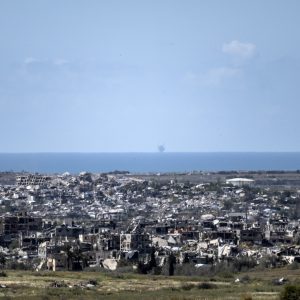‘Taliban efforts to reduce poppy cultivation acknowledged worldwide’
ISLAMABAD (AA): The interim Taliban administration in Afghanistan said Thursday that poppy cultivation in the country has been “almost eradicated” and praised a recent report by a UK-based organization which acknowledged their efforts at the global level.
Hafiz Zia Ahmad, the deputy spokesman at Afghan Foreign Ministry, credited the Taliban supreme leader, Mullah Haibatullah, for the decrease in poppy cultivation after he issued a decree banning poppy cultivation in April last year.
“Following the IEA (Islamic Emirate of Afghanistan) Supreme Leader’s decree, poppy cultivation has been reduced to zero. According to recent media reports, 56.2% of land in Helmand province was poppy cultivated in 2020 whereas it has reduced to 0.4% by 2023 while in reality, it is much lesser,” Hafiz Zia Ahmad tweeted.
His statement came after Alcis, an organization that provides geographical information services, said in its report that poppy cultivation fell in the war-torn country by 80% as compared to 2022.
“. . . an effective ban on poppy cultivation has been imposed in Afghanistan in 2023 and opium production will be negligible compared to 2022,” said illicit drugs expert David Mansfield in a report citing satellite imagery.
Mansfield added that the high-resolution imagery shows that in the Helmand province poppy cultivation has fallen from more than 120,000 hectares (296,526 acres) in 2022 to less than 1,000 hectares (2,471 acres) in 2023.
The report praised the Taliban’s efforts against poppy cultivation. However, it warned that cultivation still persists in some parts of the northeast such as Badakhshan.
US calls it important move
In a rare acknowledgement of the Taliban’s policies, the US Afghanistan point man, Thomas West, said: “Reports that the Taliban have implemented policies to significantly decrease opium poppy production this year are credible and important. Every country in the region and beyond has a shared interest in an Afghanistan free of drugs.”
However, local farmers in Helmand and Nangarhar provinces, the major poppy growing area, said the Taliban have destroyed their crops without providing any compensation.
“Poppy was a major source of our income that has now been completely banned by the Taliban,” Abdul Wahid Afkari, a local farmer in Helmand, told Anadolu over the phone.
He complained that the Taliban did not provide any compensation or support to local farmers.
“We request the Taliban government and international community to help us as we have no other income source in this backward area,” Afkari said.
‘Now world’s turn to help our people’
Afghan Taliban deputy spokesperson Bilal Karimi admitted that no major development projects could be launched in the areas as the country was passing through an economic crisis.
“We fulfilled our promise to the world and now it is their return to support us in providing alternative employment to local people,” Karimi said.
Karimi also praised Alcis’ report and said: “The world has now acknowledged our efforts in bringing peace and freeing our country from drugs.
“We have secured the world and now they should come forward, fulfill their promises and help our people.”










